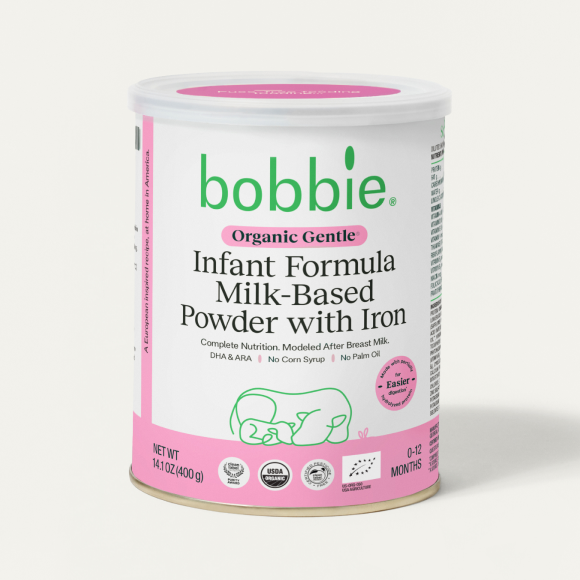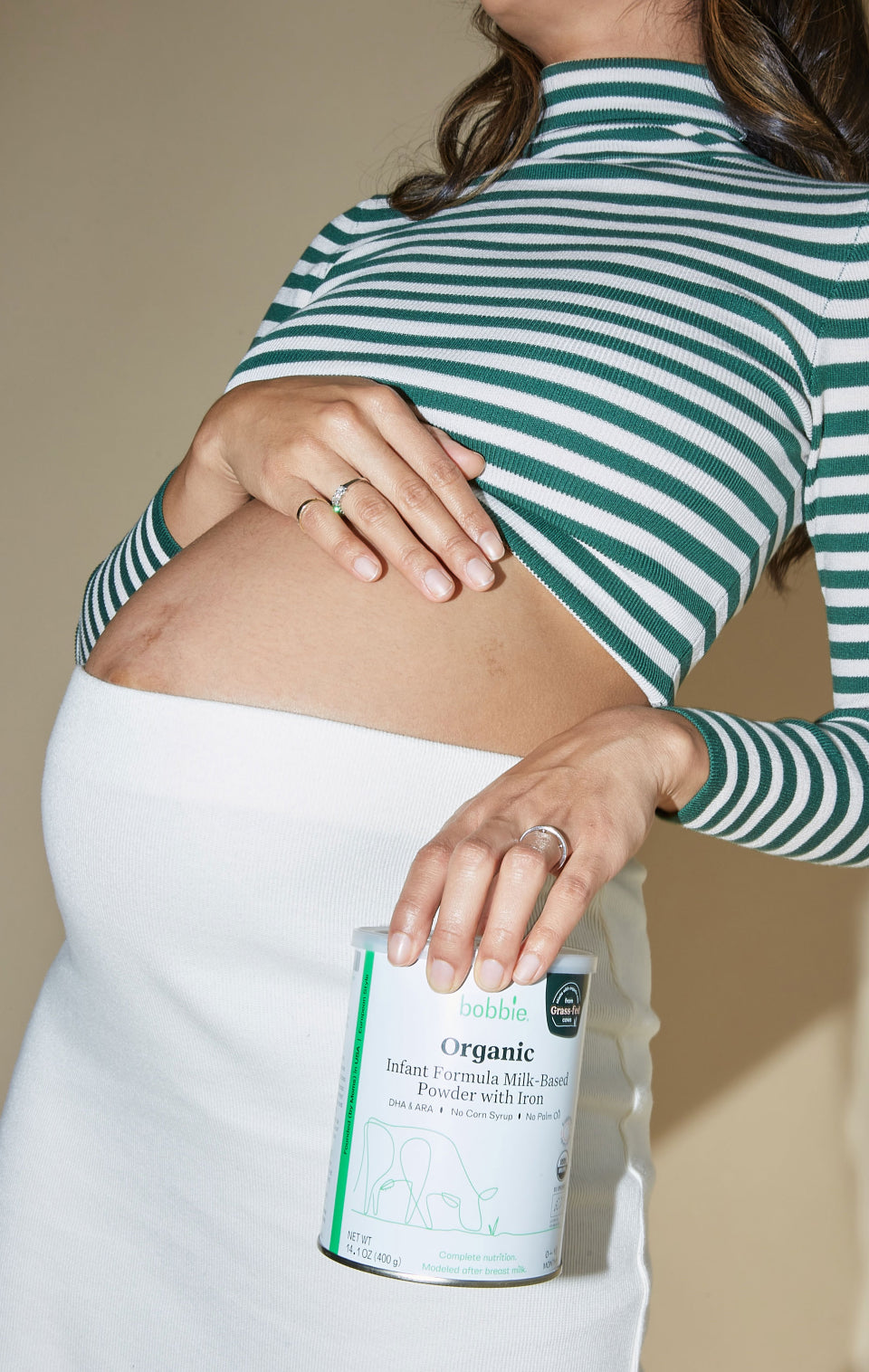Baby Feeding Chart for Year One
How Much Milk Should I Feed My Baby?
The amount of formula your baby needs will likely vary as they grow. A baby feeding chart can help minimize guesswork. The American Academy of Pediatrics recommends that infants consume approximately 24-32 ounces of breastmilk or formula per day during their first year.
If you're mostly breastfeeding and/or combo feeding your baby, your Bobbie journey will look different from what we've listed below. Breastmilk intake can vary substantially from formula intake due to the changing nutrient content of breastmilk as a baby ages. We recommend taking our Formulator Quiz to ensure you're selecting the Bobbie bundle size that's just right for your family.
The amount of formula your baby needs will likely vary as they grow. A baby feeding chart can help minimize guesswork. The American Academy of Pediatrics recommends that infants consume approximately 24-32 ounces of breastmilk or formula per day during their first year.
If you're mostly breastfeeding and/or combo feeding your baby, your Bobbie journey will look different from what we've listed below. Breastmilk intake can vary substantially from formula intake due to the changing nutrient content of breastmilk as a baby ages. We recommend taking our Formulator Quiz to ensure you're selecting the Bobbie bundle size that's just right for your family.
| Babies Age | Daily Volume | Approx. Feeding Frequency | Monthly Bundle Size (14.1 oz) |
|---|---|---|---|
| 1-4 weeks (Newborn) |
6-12 bottles (2-3 fl. oz) |
Every 2-3 hours or according to baby’s hunger cues |
4 cans |
| 1 month |
7-10 bottles (2-4 fl. oz) |
||
| 2 months |
6-8 bottles (3-4 fl. oz) |
Every 3 hours or according to baby's hunger cues |
8 cans |
| 3 months |
5-7 bottles (3-5 fl. oz) |
Every 3 Hours | |
| 4 months |
5-6 bottles (4-6 fl. oz) |
||
| 5 months |
5-6 bottles (5-7 fl. oz) |
||
| 6 to 11 months |
4-5 bottles (6-8 fl. oz) |
Every 3 to 5 hours | 10 cans |
| 12 months |
3-4 bottles (8 fl. oz) |
Every 4 to 6 hours | 4 cans |
To prepare Bobbie formula, add one unpacked, level scoop of powder for every 2 fl. oz. of warm water. Always add water first, then powder, and shake to mix thoroughly. These recommendations are based on normal growth patterns for healthy term infants and are provided as general guidance to estimate how much Bobbie to order, always consult your infant’s healthcare provider to ensure your child's unique needs are being met.
We wanted our best formula option for our babies... so we made it!
See how Bobbie compares to other formula options on the market











